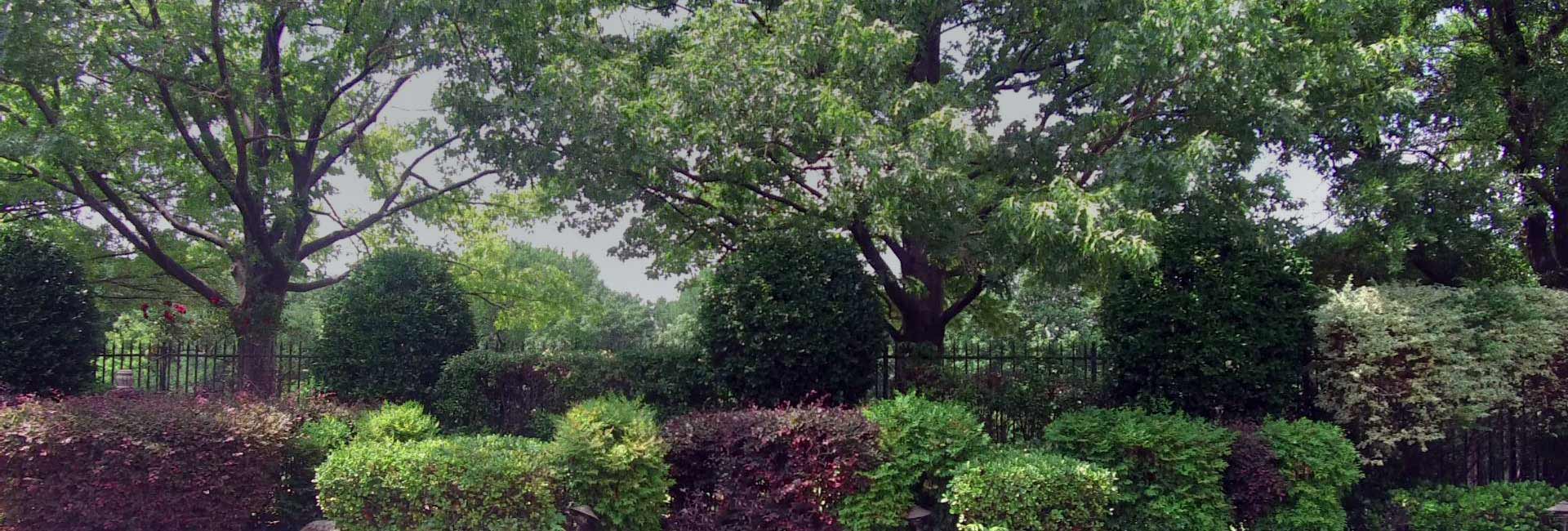Q. My neighbor thinks I am over watering my Boxwood shrubs because the leaf tips are wilting and turning brown. Is he right?
A. Two things that will cause your leaves to wilt are not enough water and too much water. We see more plants damaged by too much water than by too little. Generally, you want to water your plants about the same as your lawn and then adjust from there, based on how your plants react. If your plants are on a shaded side of your house, you might water them a little less than you water your lawn.
Q. How would I know if I have aphids on my Cleyera, or any other plant for that matter?
A. Aphids are so small that it is very difficult to see them. Usually you can tell if they are on your plant because you will see dark specs on the leaves. Aphids secrete a sticky clear substance that grows a black mold. Since aphids suck the juice from the leaves, if you have a lot of them, they can damage or kill a plant.
Q. I have a white powdery film on my Crape Myrtle. What is it, and can you do anything about it?
A. Crape Myrtle is known to occasionally have problems with aphids and powdery mildew. Both are serious and need to be treated promptly. By the name you probably have recognized that your assailant is powdery mildew. Powdery mildew is a fungus that penetrates the leaf's tissue and draws nutrients from that source. It is capable of severe damage to many different ornamentals and should be treated with a fungicide.
Q. We appreciate the fact that our Jurassic Lawn Care specialist can treat our lawn and landscape on the same visit but other companies have told us that they treat lawns and landscapes on different trips because special equipment and training are required for trees and shrubs. Which is best?
A. It is true that special equipment and training are required to treat trees and shrubs. Many companies cannot treat both at the same time because they work out of a pickup truck or van and cannot carry the necessary equipment for both lawn and landscape. At Jurassic Lawn Care we have our trucks set up with separate lawn care, and tree and shrub equipment. Even though in the beginning it costs us more, in the long run it saves us and you money.
Q. I have some Euonymus plants, and seem to always be having problems keeping them healthy. What am I doing wrong?
A. The first thing someone did wrong was to plant them, unless of course you just really like them. Our tree and shrub program will help them tremendously. This will include dormant oil to protect against scale, insecticide to protect against aphids, nematodes and other insects, and fungicide to protect from powdery mildew and other funguses. With Euonymus, if you have a bad case of powdery mildew, sometimes it is best to remove the plant. Powdery mildew is very difficult to control on Euonymus.
Q. I'm going to be putting in some shrubs and ornamentals at my new home. What are some good plants that require no maintenance?
A. All plants require some maintenance, however a few of the plants that do very well, in the Dallas-Fort Worth area, and are normally easy to maintain include some dwarf hollies like Dwarf Burford Holly, Dwarf Chinese Holly and Dwarf Yaupon Holly. Other non-dwarf hollies include Burford Holly, 'East Palatka Holly, Foster Holly, 'Nellie R. Stevens' Holly, 'Savannah' Holly and Weeping Yaupon Holly. Other "good plants" include Nandina Domestica, Variegated Ligustrum (often called Variegated Privet), Indian Hawthorne and Elaeagnus. Crape Myrtles also do well but may require some maintenance to rid them of aphids and/or powdery mildew.
Q. I have little webs scattered throughout my shrubs. Do I need them to be treated?
A. Fine webbing in your plants is likely to be evidence of mites. If you see plant damage you should treat with a miticide. Heavy population of mites will destroy a plant.
Q. How do I know if I have borers in my tree?
A. Evidence of borers in trees would be round holes coming out from underneath the bark of the tree's trunk. Unfortunately, quite often, treatment for borers at this point is too late. Borers prefer trees in poor health; fast growing trees are also more susceptible. The best way to prevent borer damage is to keep a healthy tree. Deep root feeding, proper watering, and other pest controls will help keep borers away.
Q. I have Photinias along the side of my house and they always have powdery mildew and black spots on the leaves. Can you help me?
A. The black spots are called "black leaf spot" or more precisely, Entomosporium. Photinias that are pruned regularly, are plagued with these diseases. Fungicides and/or reducing the amount of pruning will help control the powdery mildew and the black leaf spot. 

